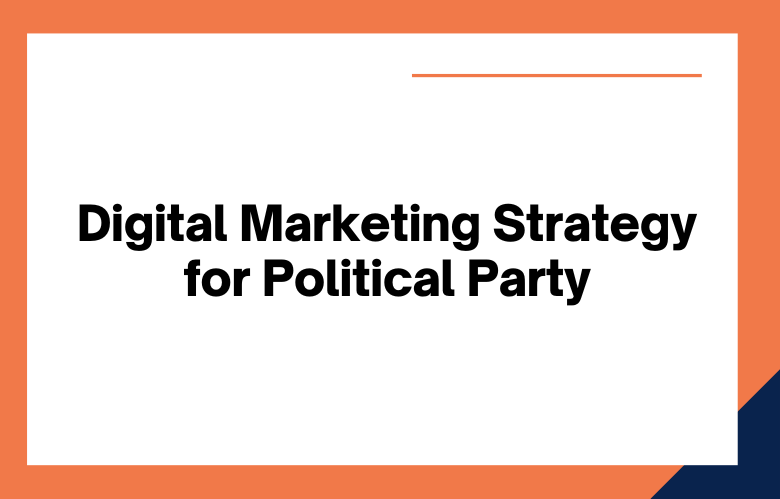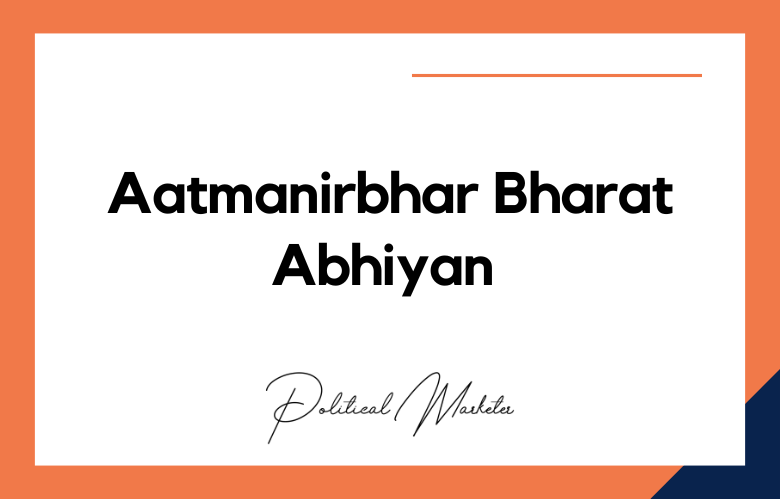In the age of digital technology, it is more important than ever to have a solid digital marketing strategy for political campaigns.
There are countless ways to use digital marketing, from social media campaigns to search engine optimization (SEO), and all of them should be used to mobilize supporters and increase engagement.
Read on to learn more about how you can develop an effective digital marketing strategy for your political party.
Developing Goals and Objectives
The first step in planning any successful digital marketing campaign is setting clear goals and objectives. Consider what you want your campaign to accomplish.
Do you want to mobilize existing supporters? Reach out to new potential voters? Increase brand recognition?
Once you’ve identified your goals, you can create measurable metrics that will help you track progress toward those goals throughout the campaign.
Without clear, actionable goals and objectives, measuring success or failure is impossible, so this step is critical.
Creating Content
Once you know your campaign’s goal, it’s time to start creating content that will help get you there.
Content should tailor specifically toward the audience you’re trying to reach; consider what kind of message resonates with them and use that as a basis for your content creation.
It’s also important to remember that content needs to be both engaging and informative; it should pique viewers’ interest while concisely conveying pertinent information about the candidate or party’s platform.
Using Digital Platforms
Now that you have quality content ready to go, it’s time to get it out! Social media platforms such as Twitter, Facebook, Instagram, YouTube, and Snapchat are essential tools for any political campaign looking to reach out online.
These platforms allow campaigns the opportunity not only to post their content but also to engage directly with voters through comments or direct messages; this is an invaluable way for campaigns to hear what people have to say about their platform or candidate now from their target audience without having to pay for market research surveys or focus groups.
SEO tactics such as utilizing targeted keywords on all posts can help boost visibility by improving organic search results rankings on Google or other search engines like Bing and Yahoo!
It will help drive additional traffic toward your website and increase engagement even further!
Understand Your Audience
Understanding who your audience is and what they are looking for is essential.
Understanding the target audience’s demographics allows you to tailor your campaigns accordingly and ensure you connect with them.
You need to know who your voters are and how best to reach them with your message.
Create Engaging Content
Content plays a vital role in digital marketing campaigns. It must be engaging, informative, and tailored specifically to the needs of your audience.
It should center around the key messages of your campaign – i.e., why people should vote for you – and should be easy to digest so that your followers can quickly understand what you stand for.
Make sure that it is relevant to their interests and does not contain any irrelevant information or filler material.
Choose Appropriate Channels
Once you have identified who you want to target, it’s time to decide which channels are most appropriate for reaching them.
Social media channels like Facebook, Twitter, Instagram, YouTube, etc., all serve different purposes when it comes to political campaigns – each has its strengths and weaknesses – so it’s essential to consider which ones will work best for your particular campaign before deciding where you’ll focus your efforts.
You can use paid advertising (e.g., Google Ads) and organic content (i.e., content created by yourself or other users).
Website Design & Content Creation
Once you have identified your target audience, it’s time to start creating content that speaks directly to them.
It could include video messages from the candidate, blog posts highlighting their positions on various issues, or even interactive polls and surveys.
It’s essential that your website is easy to navigate and looks professional, so people want to stay on it long enough to read the content and learn more about your party’s platform.
Social Media Engagement
Social media has become integral to any political campaign’s success or failure.
Platforms like Facebook and Twitter allow you to reach potential voters quickly and efficiently while providing an excellent real-time way for people to engage with the party’s message.
Social media allows you to target specific audiences based on demographic information or interests—making it easier for political campaigns to get their message out there.
Start With The Right Partners
Having the right partners is essential when creating and executing a successful digital marketing strategy.
You should partner with experienced digital marketers who can provide valuable insights into how best to reach your target audience.
Research potential partners thoroughly before signing contracts and ensure they can deliver on their promises.
Understand Your Audience
You must understand who your target audience is so that you can craft messaging that resonates with them.
Take time to do extensive market research to gain insight into the types of people who will likely vote for your candidate or party and what channels they use most often when engaging with political campaigns online.
It will allow you to create targeted campaigns that speak directly to your audience’s needs and interests.
Leverage Social Media
Social media is one of the most powerful tools available for engaging voters directly and driving engagement around your political campaign’s message.
It’s also an excellent way of staying connected with supporters and building relationships with potential voters on an ongoing basis.
A solid social media presence allows you to respond quickly if anything changes during the election cycle or issues arise related to your campaign or candidate’s platform.
Political Party Digital Marketing Strategy Consulting
Political Party Digital Marketing Strategy Consulting is a growing industry providing specialized services to political parties, candidates, and campaigns.
Political parties often need help understanding the changing digital landscape and developing an effective digital marketing plan.
With the proliferation of social media and other digital platforms, many campaigns need more expertise or resources to create an effective digital strategy.
A political party digital marketing consulting firm can help develop a comprehensive strategy considering the current environment, demographics, and trends on various platforms.
It can also guide how to effectively target potential voters online, with messaging reaching them at the right time and place.
Through data analysis from past campaigns, consultants also help political parties better understand their audiences so they can more accurately target them with ads or other content.
Consulting firms can assist by creating content for campaigns that resonate with voters and communicate their message clearly and succinctly.
Utilizing analytics tools such as Google Analytics allows consultants to measure success across different mediums while allowing parties to adjust their efforts accordingly.
A political party digital marketing strategy consulting firm provides invaluable advice and guidance to ensure political campaigns successfully reach their target audience online.
Conclusion
Digital marketing has become a vital tool for all types of organizations looking for success in today’s tech-driven world—and political campaigns are no exception!
By taking the time upfront to develop clear goals and objectives along with engaging content explicitly tailored towards their target audiences, political parties can ensure they are making smart investments in their digital marketing efforts that will ultimately lead them closer and closer towards victory come election day!
With these tips in mind, any political party can plan an effective digital marketing strategy to maximize its outreach potential while staying within budget constraints!
search engine optimization











